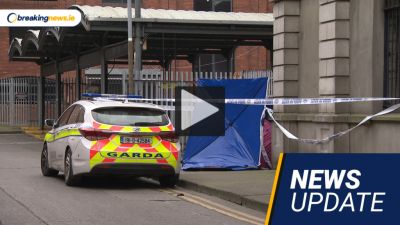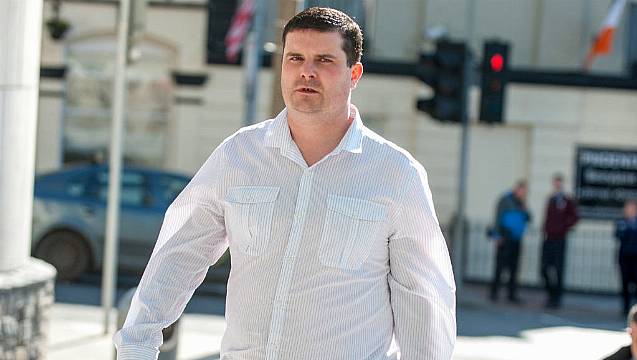Alan Harte's application for permission to bring proceedings aimed at setting aside his conviction and 30-year prison sentence for kidnapping and attacking businessman Kevin Lunney should be on notice to the Director of Public Prosecutions (DPP), the High Court has directed.
In his action Harte is challenging the constitutionality of Section 40 of the 1939 Offences Against the State Act which directs that a person who comes before the three-judge Special Criminal Court cannot be told if they have been convicted by a majority decision or a unanimous decision.
The 1939 Act provides for the establishment of the non-jury Special Criminal Court (SCC).
The action, which first came before the court in February, returned before Mr Justice Charles Meenan on Monday. The judge had previously adjourned the matter to allow Harte's legal team produce additional submissions in support of his claim.
The judge said he had received the additional submissions but added that he did not think the case has much merit.
Challenge
While the court was not prepared to grant leave, the judge directed that the application for leave to bring the challenge be made in the presence of lawyers for the DPP, the State and the SCC.
Last year Harte (41) was sentenced to 30 years in prison by the SCC for committing serious harm on and falsely imprisoning the Quinn Industrial Holdings (QIH) director at a yard in Drumbrade, Ballinagh, Co Cavan in September 2019.
Due to Section 40, Harte claims he does not know if all three judges of that court found him guilty or if he was convicted on a majority decision.
This, it is claimed, contrasts with a jury trial, where since 1984 at least 10 jurors must decide if an accused is guilty or not guilty of an offence they have been tried for.
A simple 2-1 majority decision of the SCC, it is submitted, is a major divergence from what is required from a jury hearing a criminal trial.
Section 40, Harte's lawyers claim, annuls the constitutional guarantees of equality, and amounts to a form of unacceptable discrimination.
The fact that Section 40 prevents the announcement of whether the SCC's verdict is unanimous or a majority decision, he claims, breaches the constitutional requirement that justice be administered in public.
Constitutionality
In his judicial review proceedings against Special Criminal Court, the Director of Public Prosecutions, Ireland and the Attorney General, Harte challenges the constitutionality of Section 40 of the Act.

Represented by Michael O Higgins SC, with Michael Hourigan Bl, Harte also seeks various orders, including an order setting aside the conviction and sentence imposed on him by the SCC.
He also seeks declarations including that the Section 40 of the 1939 Act breaches the Irish Constitution because it does not allow an accused person to be informed if they have been convicted by a majority or unanimous decision of the SCC.
He further seeks a declaration from the court that his trial before the SCC was unfair, not in accordance with the law and in breach of his constitutional rights.
The leave application was adjourned to a date in May.







